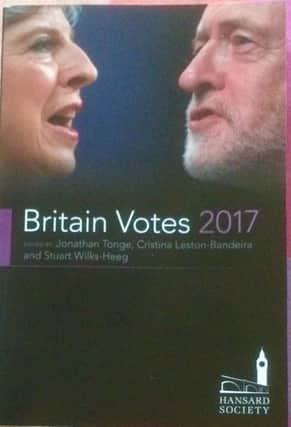A fascinating snapshot of UK's political mood ahead of Brexit


May had inherited a very slim majority from David Cameron and a Brexit policy she really didn’t want to implement. She needed a solid majority, enabling her to see off challenges from Labour and the SNP, as well as lessening the impact of Remainers on her own backbenches. A strong, fresh mandate won in her own name would also – or so some of her advisors hoped – strengthen her negotiating hand with the EU.
Instead, she got the worst possible result, leaving her entirely dependent on luck and the DUP. And that dependency on the DUP left her completely hamstrung when it came to dealing with the ongoing impasse in Northern Ireland; as well as making the negotiation with the Irish government on the “border problem” much more complicated than she needs it to be. Norman Lamont, the former Conservative Chancellor, could have been referring to her when he said, in April 1993, “There is too much short-termism, too much reacting to events and not enough shaping of events. We give the impression of being in office but not in power. Far too many important decisions are made for 36 hours’ publicity.”
Advertisement
Hide AdAdvertisement
Hide AdBritain Votes 2017 is a fascinating snapshot of the UK’s political mood and divisions in the run-up to its departure from the EU in March 2019. And it’s not a particularly happy snapshot. The tensions revealed by the pro-Brexit result in June 2016 are still there; and May’s hopes that an early election would deliver a rallying-around-the-nation outcome were not so much dashed as wrecked. At this point there is still no certainty that she can, in fact, deliver her Brexit policy; so her fall from power, followed by another election and a second referendum cannot be ruled out.


Her problem throughout the election – and it may explain why she did so badly – is that it was never clear what she wanted; nor what her core values were. Most of what she said about the future of the UK outside the EU didn’t amount to much more than “It’ll be alright on the night” platitude. She trotted out a line about a “magic money tree” when asked a serious question about pay; was forced to perform a u-turn on what her opponents had described as a “dementia tax”; and the party’s manifesto failed to understand that austerity was a concern for huge numbers, particularly those May had previously described as the “Just About Managing”.
At a moment when the UK needed a charismatic, thoughtful leader to guide them through the greatest political/economic challenges since the Second World War, the choice they had was May or Jeremy Corbyn. As the book notes, Corbyn was able to attract huge support from young voters who were worried about the uncertainties and risks of a post-Brexit UK. Yet it also notes the irony that these young voters, happy to back the ideological zeal of Corbyn, were also backing someone who was probably more pro-Brexit than Theresa May. Mind you, Corbyn, like May, was also pretty vague when it came to setting out a vision for the UK. Indeed, the evidence suggests that he attracted votes more because of Labour’s anti-austerity agenda than because of any nailed-down position on Brexit. General confusion about what both leaders believe and want still lingers and continues to muddy the debate.
There are a couple of interesting chapters on Digital Campaigning and The Media Campaign. I know that much is made of the impact of new media and new technology on elections, yet the fact remains that it’s still the big two parties which dominate the UK landscape (82.4% in 2017); there is little evidence of new voices and vehicles making much progress; the sort of people who “do” politics on social media tend to have views which are already shaped; and, generally speaking, it’s still the same elites/opinion formers/establishment status quo in place at the end of the day. The means of doing it may have changed, but campaigning/politicking is still about targeting your core vote, pinpointing potential converts, not spooking swing voters, rubbishing your opponents, “bigging” yourself, spreading the message and getting out your vote on election day. And the huge sums of money required.
Advertisement
Hide AdAdvertisement
Hide AdThe chapter on Northern Ireland and Triumph for the DUP is, of course, of particular interest. The result saved Arlene Foster’s leadership; for had May not required the DUP to prop her up government Foster’s authority – seriously damaged by the Assembly election a few months earlier – would have vanished altogether. As the chapter notes, “The result was palpably a dream scenario for the DUP.” But at some point Mrs May could be forced to make a choice between the DUP and a final deal from the EU: and it’s at that point the dream scenario could morph into a nightmare.
What emerges from Britain Votes 2017 is a portrait of a United Kingdom which faces a key existential question: how secure is its geographical/constitutional future? And that’s the question upon which the Conservatives and DUP should be particularly focused right now.
Britain Votes 2017
Edited: Jonathan Tonge, Christina Leston-Bandeira and Stuart Wilks-Heeg
Pub: Oxford University Press (22 March 2018)
Price: £15.99